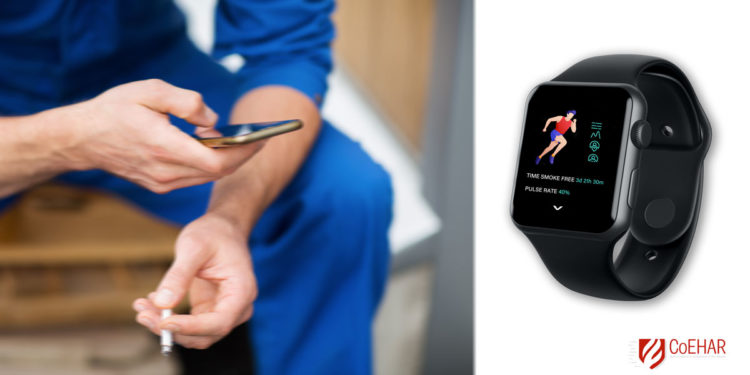Catania, Italy, April 21 – A new article by the researchers from the CoEHAR confirms that APPs for smartphones and tools for detecting and monitoring the rituality linked to smoking through new smart-technologies (smart band, smart watch etc.) can help people quit smoking or reduce cigarette consumption.
“We have evaluated as many as 32 new monitoring and aimed at combatting tobacco addition – 12 detecting and monitoring systems and for daily cigarettes and 20 smart smartphones, to be precise” – says Professor Sebastiano Battiato of Catania University’s Information and Strategic Programming Department. He led the research team from the university’s Centre for Excellence for Acceleration of HArm Reduction (CoEHAR).
Tool selection was made among those already analyzed in studies published on PubMed, Scopus and Google Schoolar. It has thus emerged that APPs such as MyQuitCoach, Quit Smoking, Craving to Quit!, QuitNow!, Quit, Smoke Free and others can be useful in countering and reducing the risk associated with cigarette smoking.
“Although with different monitoring methods – commented Battiato adding that the APPs are very useful tools to monitor smoking habits and to motivate people to quit – The analyzed scientific studies show that these tools can boast promising results. However, it must be considered that their application in daily life is not without its difficulties. For these reasons greater investments are needed for scientific research applied to technological tools to stop smoking, aiming at defining reliable systems capable of guaranteeing high performance in the actual use of everyday life” – he added.
Infact, the daily use of these technologies implies that tracking by the APP of a wide variety of actions, habits and gestures performed by the user can be complicated by the overlap of other actions. For example, some people usually smoke while driving or during manual work. The quality of the evaluation and monitoring of these tools must be validated in basic conditions of use as well as in realistic conditions, with all the complications that it entails.
However, it must be emphasized that, while most of the APPs are based on the participants’ self-report (for example, the annotation in a diary), some more innovative solutions, such as SmokeBeat, which use wearable sensors (such as smartwatches or smartbands) and have a more direct approach (providing automatic feedback and objective verification of one’s smoking habit) could be of greater impact thanks to the cognitive-behavioral technique of self-monitoring.
Being able to self-evaluate our own behavior determines indeed an increase in the level of awareness and a greater control of compulsive smoking of conventional cigarettes.
“This is yet another example of how technological innovations are steadily gaining a central foothold in the management of our daily lives. Health science is not an exception and it must evolve in conjunction and dialogue with other scientific disciplines such as computer science and electronics” – said Professor Riccardo Polosa, CoEHAR Founder. “This is the only way to find useful solutions to spread healthier lifestyles” – he added.
Non sorprende che il team di ricerca per questo lavoro abbia coinvolto la partecipazione di vari professionisti scientifici: Alessandro Ortis del Dipartimento di Matematica e Informatica; Pasquale Caponnetto, professore a contratto di Psicologia clinica delle dipendenze al corso di laurea in Psicologia, e Toti Urso, Project manager dell’Università di Catania.
From: https://www.coehar.org/coehar-evaluates-the-new-apps-created-to-help-quit-smoking/






